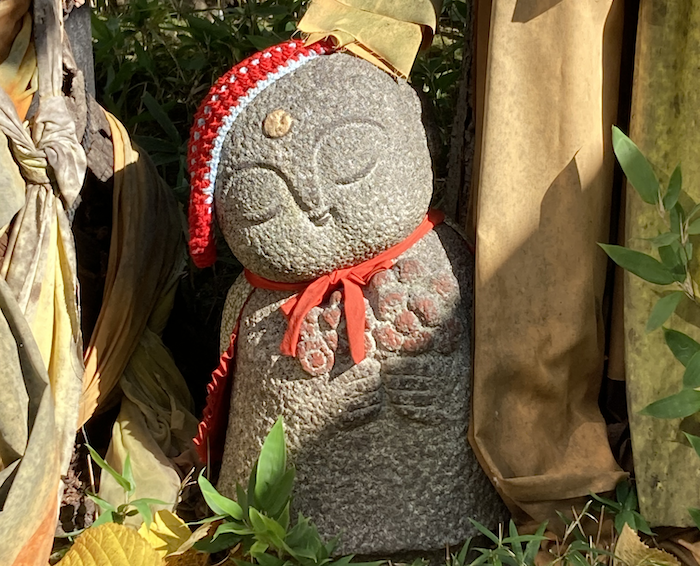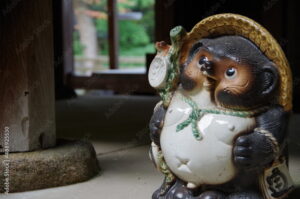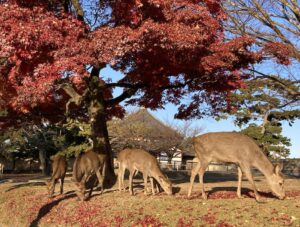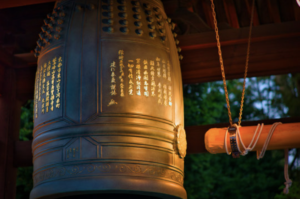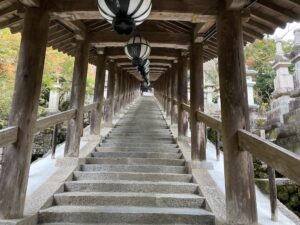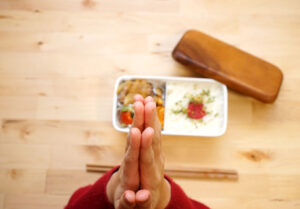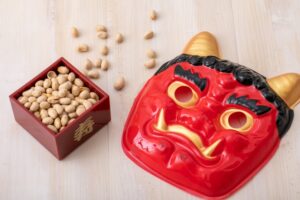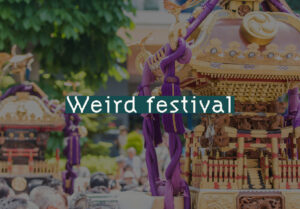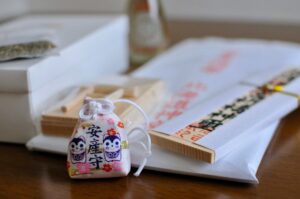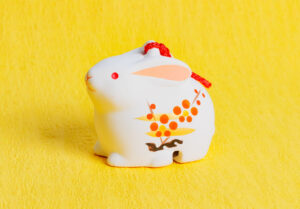In Japan, small stone statues can be found everywhere at the foot of mountains, rivers, near fields, and along roads in residential areas, as well as in the precincts of temples.
Those stone statues are “bodhisattvas,” the objects of Buddhist faith. People call them “Ojizo-sama” or “Ojizo-san” with familiarity.

Is Ojizo-sama a Deity or a Buddha?
The official name of Ojizo-sama is “Jizo Bosatsu”. Bodhisattva, the object of Buddhist faith, means a person who seeks enlightenment and trains himself to save all living things.
The word “Jizo” comes from the Sanskrit word for “mother of the earth”. It means that he embraces people with compassion as broad as the earth that creates and nurtures life.
In Buddhism, Jizo Bodhisattva is said to be the being who saves the world after Shakyamuni (the founder of Buddhism) is gone, until the birth of the next new Shakyamuni Buddha. Jizo Bodhisattva, who seeks enlightenment and trains himself to save all beings of life, is thought to save those who are in a weak position. For this reason, Jizo is also considered to be a Buddha who is closely associated with children who died at an early age or before they were born.

History of Jizo in Japan
Jizo was introduced to Japan from the continent around the 8th century, during the Nara period (710-794). In the late Heian period (794-1185), the Jizo belief that Jizo Bosatsu (Jizo Bodhisattva) could save people from the suffering of hell spread among the masses.
Later, stone statues were erected in various places in the community in connection with the Doso faith. The belief in a Buddha who saves and watches over children began, and the belief was further deepened as Koyasu Jizo, Child-rearing Jizo, and Substitute Jizo, and has been cherished by the people of the region.
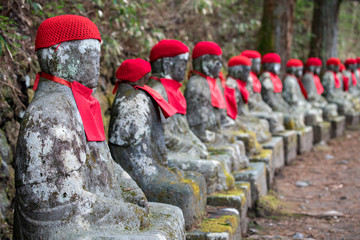
Doso worship / Douso shin
A local guardian deity, a god who prevents epidemics and evil spirits from entering from outside the community at village borders, etc.
Koyasu Jizo
Jizo is said to protect pregnant women during childbirth.
Child-rearing Jizo / Kosodate Jizo
Jizo is said to have various benefits related to “child” such as matchmaking, good marriage, childbirth, and safe childbirth as well as child rearing.
Substitute Jizo / Migawari Jizo
Jizo who takes on the suffering of those who have suffered a calamity as a substitute.

Reasons for Jizos in Graves
Jizo statues on graves are built for the repose of the souls of children who died in their infancy or before they were born.
It is also a wish that ancestors and the deceased will not suffer after death and can rest in peace.
Jizo Wearing a Front Robe or Hood
Many Jizo wears a red slobber coat or hat. Sweets, juice, and soft drinks are sometimes offered.
Since Jizo has been worshipped as a “deity who protects children,” people began to dedicate drool costumes and head coverings with the hope that their children would grow up healthy.
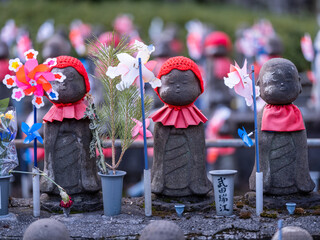
Red to Protect Children from Bad Luck
For a long time, it has been believed that the color red is meant to ward off evil and evil spirits. For this reason, red cloth was used for baby clothes (in Japanese, “赤ちゃん” “赤子” means a baby. 赤/ Aka means red). Red aprons and hoods were worn (dedicated) to Jizo with the hope that he would protect the child.
Recently, various colors and patterns other than red are used for Jizo-sama, partly because of their cute appearance.
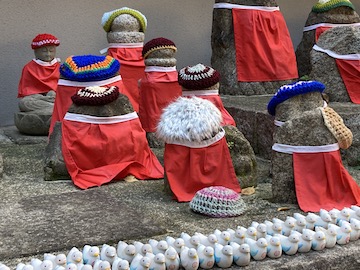
Benefits of Ojizo-sama
Jizo are believed to bring blessings such as good health, good harvest, traffic safety, safe delivery, childbirth, child bearing, child protection, memorial services for ancestors, and victory in battle.
Dosojin” carving letters and Buddhist figures on natural stones
Dosojin” is a deity that has been worshipped in the same way as Jizo and cherished by local people.
Dosojin is not a Buddhist statue, the object of Buddhist faith, but a deity of folk belief.
Dosojin are enshrined mainly in the form of stone statues or stone monuments at roadsides such as mountain passes, at the center of villages, and at the boundaries of villages. Dosojin is a deity that protects people from disease and evil spirits that come from outside the community.
Later, it became the most familiar deity to pray for prosperity of offspring, traffic safety, a good harvest, and good health.
In addition to Dosojin, there are various other names for this deity depending on the region.
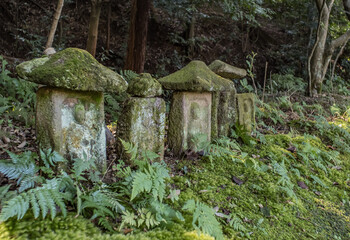
Even today, Jizo and Dosojin are still objects of prayer and carefully protected by local people.

👉Feel free to contact us if you have any questions.

